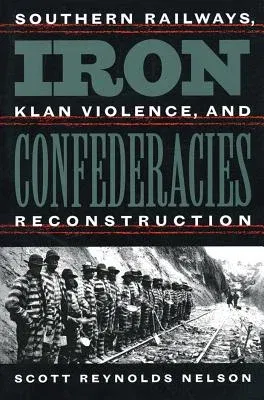Scott Reynolds Nelson
(Author)Iron Confederacies: Southern Railways, Klan Violence, and ReconstructionPaperback, 31 May 1999

Qty
1
Turbo
Ships in 2 - 3 days
In Stock
Free Delivery
Cash on Delivery
15 Days
Free Returns
Secure Checkout
Print Length
272 pages
Language
English
Publisher
University of North Carolina Press
Date Published
31 May 1999
ISBN-10
0807848034
ISBN-13
9780807848036
Description
Product Details
Author:
Book Format:
Paperback
Country of Origin:
US
Date Published:
31 May 1999
Dimensions:
23.75 x
15.9 x
2.01 cm
ISBN-10:
0807848034
ISBN-13:
9780807848036
Language:
English
Location:
Chapel Hill
Pages:
272
Publisher:
Weight:
408.23 gm

